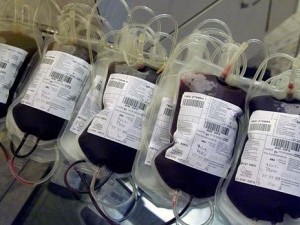FDA equips blood bank in Bolgatanga
 The Food and Drugs Authority (FDA) in Bolgatanga the Upper East Regional capital, has organized blood donation exercise as part of its mandate to ensure the wellbeing of the citizens in the country.
The Food and Drugs Authority (FDA) in Bolgatanga the Upper East Regional capital, has organized blood donation exercise as part of its mandate to ensure the wellbeing of the citizens in the country.
The exercise offered opportunity for members of the public and about 23 stakeholder organizations within the municipality and students from the Bolgatanga Senior High School, the Zamse Senior High Technical School among others to donate blood to equip the blood bank at the Regional hospital.
Mr Sabastian Mawuli Hotor, the Upper East Regional Head of the FDA in an interview with the Ghana News Agency (GNA), said the exercise was a major collaboration between the FDA and the Ghana Health Service.
He said apart from the FDA’s core mandate of ensuring that wholesome food and safe drugs were in the country for consumption, “we also feel that as an organization, we should be able to give back to the country in a way that will be very relevant and helpful.”
He said blood donation was one of the initiatives that the FDA had decided to take up as its legal mandate, and noted that the initiative, which started three years ago at the headquarters of the FDA in Accra, was the vision of the Authority’s Chief Executive Officer (CEO), Mrs Delese Mimi Darko and her management team.
Mr Hotor disclosed that it was management’s decision to extend the blood donation exercise to the various Regions this year, and said “In the Upper East Region, this is the first of its kind, and we did a bit of media sensitization.”
“It is an opportunity for us to give back to the blood bank. The blood bank has always been requesting for blood because it is short of adequate blood, so this is the little we can do as an organization.”
Madam Ajaratu Issah, Head of Blood Mobilization at the Upper East Regional hospital in Bolgatanga who led a team of laboratory professionals to conduct the exercise, explained that donors were taken through physical examination to rule out persons with infected wounds on their bodies and to ensure that they were not sick.
She said persons on any medications could not donate, and insisted, “Once blood is going into somebody, you should ensure that it is safe and it is coming from a healthy donor who will not pose any danger to the client.”
Madam Issah said blood samples of qualified persons were taken to check their blood levels to ensure that they had enough blood to donate, and indicated that females could donate blood if they had 12 to 18 grams per deciliter of blood while males could donate if their blood levels ranged between 13 to 18 grams per deciliter.
She said the blood bank needed to be equipped at any given time to save emergency situations such as planned and unplanned surgeries, anaemia cases in children and pregnant women among others. “As for the blood bank, at all times, we need blood. It is never enough for us because there is no artificial substitute for blood.”
She entreated members of the public, especially people between the ages of 17 to 60 years to endeavour to participate in blood donation exercises because apart from helping somebody in need of blood, new cells were produced in the bodies of donors, which made them healthy.
Source: GNA
